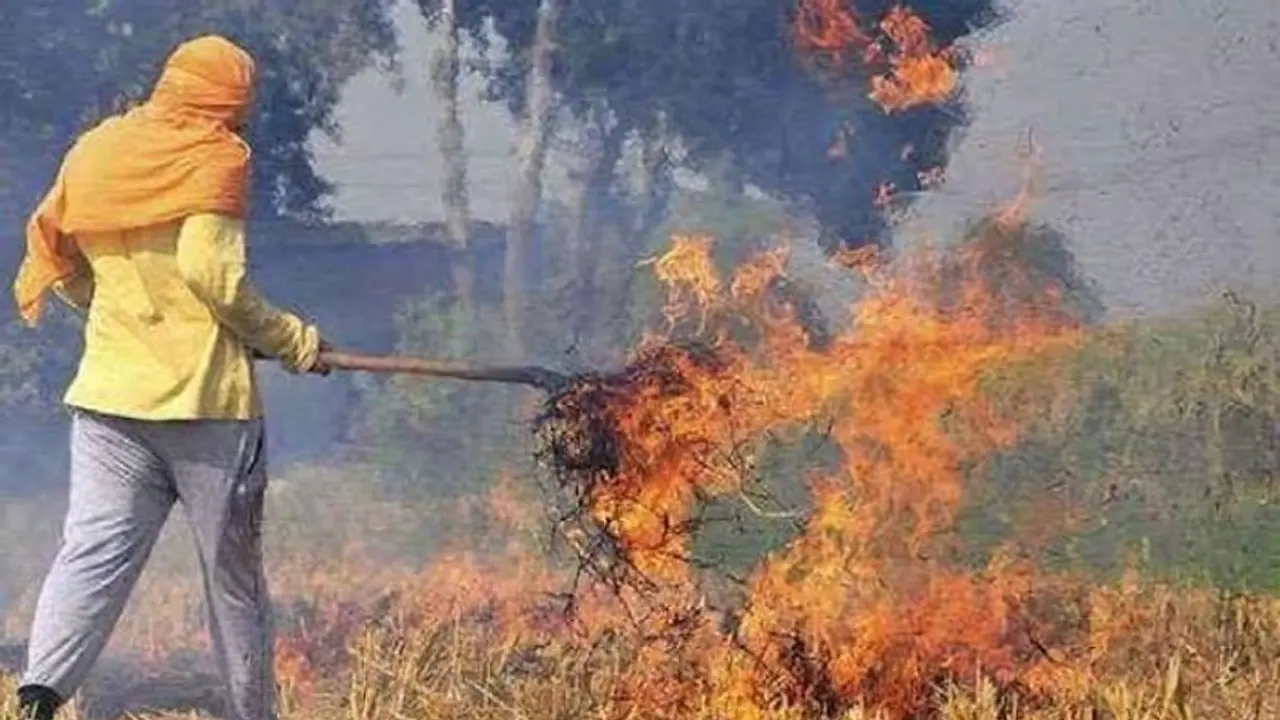Stubble burning begins around September 20 but the number of fire events remains low till October 12-14. The rains in September suppressed farm fires in Punjab and Haryana and kept air pollution in check in Delhi-NCR, said Vinay Sehgal, principal scientist at the IARI.
A senior official of the Punjab Pollution Control Board (PPCB) has said that crop diversification is not a long-term solution to the problem of stubble burning and it will take four to five years to properly resolve the issue.

Crop diversification and using short duration varieties of paddy are among several initiatives proposed by the Centre and experts to resolve the stubble burning issue in Punjab and Haryana.
At a workshop organised by the Delhi-based Climate Trends in Chandigarh on Monday, PPCB Member Secretary Krunesh Garg said counting the number of farm fires is an inaccurate measure of ascertaining the scale of stubble burning and that the acreage of land being put on fire is the parameter to be measured.
"It is not that the problem is not being addressed, we are mapping it down to the block and village level, but it will take four-five years for proper resolution," Garg said.
Also read: Avalanche strikes Uttarakhand’s Danda-2 peak; 28 trainee mountaineers trapped, rescue ops underway
The area under paddy cultivation in Punjab has increased from 29.61 lakh hectares in last year to 31.13 lakh hectares this year. This would result in the generation of 19.76 million ton of paddy straw this year as compared to 18.74 MT last year.
Crop diversification is not a long-term solution because it does not mean that biomass will not be produced by other crops. It will just be another kind of biomass waste, like cotton sticks, mustard straw waste etc.
"Issues with respect to (stubble) burning will always remain. So, we need to find solutions, both in situ and ex-situ. A combination of these can only be effective," Garg said.
A prolonged spell of rains in September delayed paddy harvesting and subsequent farm fires in some regions of Punjab and Haryana. Another weather system is predicted to bring rain in parts of north India between October 4 and October 8, which could further delay harvesting in some areas, forecasters said.
Experts say farmers are more likely to burn stubble to make up for the lost time and quickly prepare their fields for the next crop.
Stubble burning begins around September 20 but the number of fire events remains low till October 12-14. The rains in September suppressed farm fires in Punjab and Haryana and kept air pollution in check in Delhi-NCR, said Vinay Sehgal, principal scientist at the IARI.
If it rains next week, farm fires will shift towards mid-October, increasing their number in that period and compounding the impact, Sehgal said. Along with unfavourable meteorological conditions, paddy straw burning in Punjab and Haryana is a major reason behind the alarming spike in air pollution levels in the national capital in October and November.
(With inputs from PTI)
